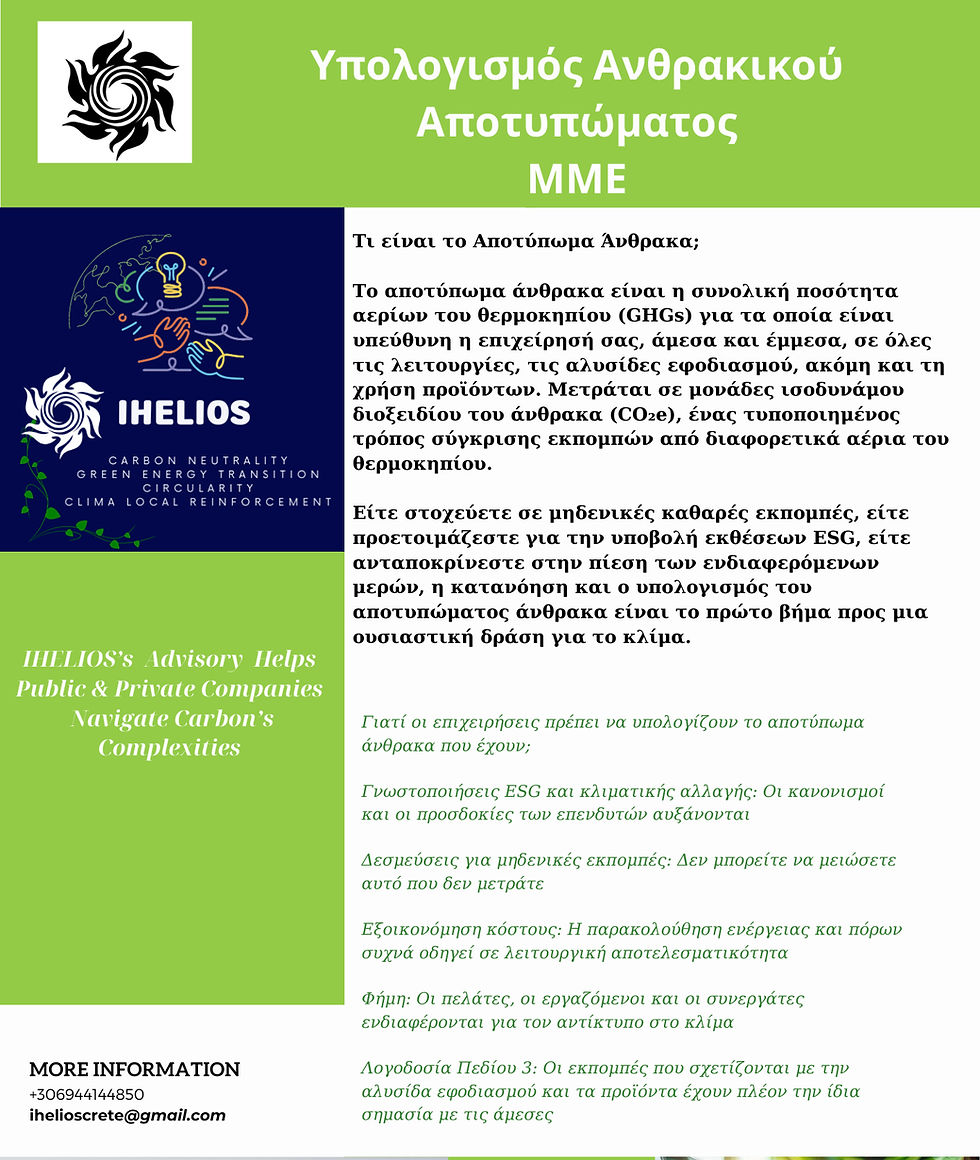A New Industrial Strategy for Europe
- Vasilakis Nikos

- 6 Ιαν 2022
- διαβάστηκε 3 λεπτά
The European Parliament adopted a resolution on a new industrial strategy for Europe.
Members stressed that the European Union needs a new industrial strategy in line with the objective of climate neutrality by 2050 at the latest, with a view to supporting the dual ecological and digital transition while maintaining and creating quality jobs.
The strategy should create the conditions for long-term growth, mobilise adequate financial resources, including stimulus measures, make the European Green Deal a reality, strengthen Europe's global leadership and reduce the EU's dependence on other parts of the world in strategic value chains by avoiding the relocation of European industries while preserving an open market.
This updated strategy should take into account two main and interlinked phases: one aimed at consolidating jobs, reactivating production and adapting it to a post-COVID ‘new normal’, and a second on rebuilding and transforming European industry, pursuing the objectives of the double transition and strengthening the EU's sovereignty and strategic autonomy.

Recovery phase
Members consider the Next Generation EU initiative as the cornerstone of the first phase of the Union's industrial recovery from COVID-19. They called on the Commission to ensure the swift implementation of the fund and called for Parliament to be fully involved in the decision-making and implementation process.
For an efficient concentration of the EUR 750 billion at the beginning of the period, Next Generation EU should:
- include targets for social, sustainable and digital investments;
- particularly target SMEs, which have been hardest hit by the COVID-19 crisis, and support their access to finance;
- take into account the specificities of Member States, which have been affected by the crisis in different ways;
- distribute financial aid among the different industrial ecosystems, ensuring that it supports businesses that contribute to long-term growth and have a high potential for economic recovery;
- support national fiscal schemes that encourage private sector participation and allow companies to convert part of their loans into equity;
- give preference to companies that commit to transparency, ensure visibility of EU funding, and put in place systems that encourage worker participation in company matters.
The productive ecosystems dealt the harshest blows by the pandemic, such as the tourism and aviation industries, should be granted greater, non-repayable support and benefit longer from the special State aid scheme.
The commission is called upon to support European and national programmes encouraging the increase of equity capital in companies and to facilitate recovery.
Reconstruction and transformation phase
Members believe it is necessary to maintain the Recovery Fund as a Reconstruction and Transformation Fund to support the environmental and digital transition while strengthening the long-term competitiveness and resilience of society and the economy. The new strategy must be able to rely on a strong social pillar and address the social consequences of structural change in a timely manner. The Just Transition Fund would be a major tool to facilitate this dual transition.
Members stressed the need to prioritise investment in industrial sectors that are vital to the EU's strategic autonomy, such as security, defence, climate-related technologies, food sovereignty and health. They reaffirmed in particular the importance of the pharmaceutical industry in supporting the responsiveness and preparedness of health systems to face future challenges, including pandemics.
The Commission is invited to stimulate domestic demand and long-term growth in the Union by attracting more investment, both public and private, in research and innovation, in the development of new sustainable and digital technologies, including in labour-intensive industries, in new networks and infrastructure projects compatible with the objectives of the European Green Deal, in energy and resource efficiency and in the circular economy.
Stressing the key role of the digital sector in transforming industry, Members called on the Commission to establish a single European digital and data environment.
International context
Members called for the recovery plan to include concrete measures to attract industries to Europe, to increase the relocation and diversification of European industries with regard to their strategic importance and, from a climate-neutral perspective, to shorten and diversify supply chains.
Recognising that the COVID-19 crisis risks leading to a rise in economic nationalism and protectionism,
Members called on the Commission to:
- defend an open and rules-based multilateral trading system that: (i) is consistent with global efforts to curb climate change and biodiversity loss and with the EU's high environmental and social standards, (ii) improves the access of European businesses to international markets and (iii) prevents powerful international players from abusing their market power;
- immediately propose a temporary ban on foreign takeovers of European companies in strategic sectors by state-owned or companies linked to third-country governments;
- reflect on reciprocity in market access and strengthen the framework for the screening of EU foreign direct investment (FDI).
The Commission is called upon to maintain and develop a world-class European intellectual property system by promoting incentive and reward mechanisms in the research and development sector in order to attract investment for the development of future innovation for the benefit of society.






Σχόλια